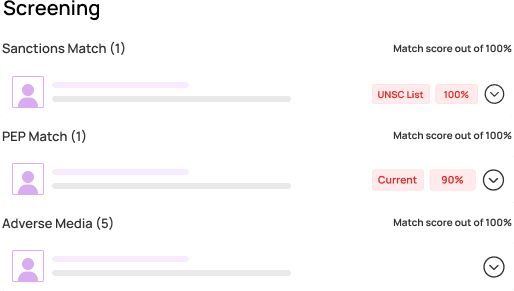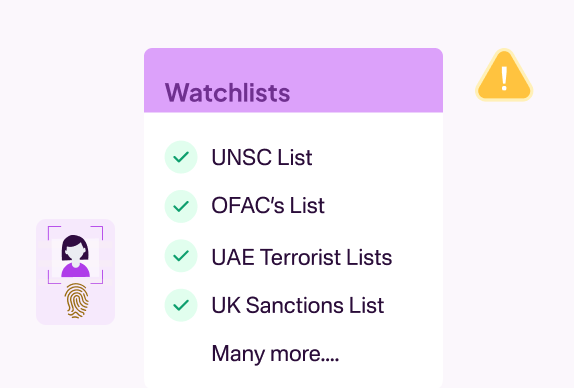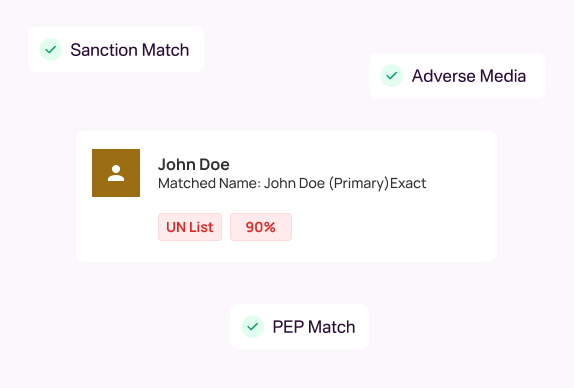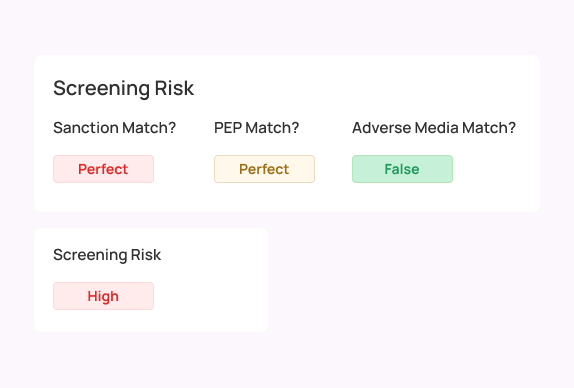
Let’s be honest. Screening can feel like a treasure hunt in a foggy jungle, right?
You find a match, but is it the right one? Or is it just a shiny distraction? We’ve all been there. Scrolling through endless results, trying to pick the gems from the gravel. It’s frustrating and ridiculously time-consuming.
Some guests are royalty (PEPs), some are banished villains (Sanctions), and some just have a very bad reputation (Adverse Media). Now would you treat them all the same?
This update is the result of that hard work, and trust us, it’s going to change how you tackle screening forever. Take a look at how it works!

Going from the Shadows to Sunlight
We knew there had to be a better way. After all, segregating results is more than just a fancy term. So, we rolled up our sleeves, put on our thinking caps, and worked hard to create a system that could just do that.
KK Gupta
The Vision Setter
Traditional screening systems do exactly that, lumping every match into one big, chaotic pile, leaving you to sort through the mess. A politically exposed person is not the same as a sanctioned entity, and adverse media alerts bring their own complexities.
Screening is supposed to bring transparency, but more often than not, it leads to running in circles. Is that John Doe, the John Doe? Or just another namesake caught in the web of false positives?
Every name match raises the alarm, but most are mere echoes of similarity. Sorting through them manually is like finding a single grain of truth on a beach full of sand.
Every minute spent verifying an irrelevant match is a minute lost to actual risks. Delays pile up, workflows stall, and compliance teams are stuck in a never-ending loop of review and re-review.
Manual sorting and filtering make the process inefficient. Delays in screening lead to slower decision-making, which can affect transactions, customer onboarding, and overall business agility.
Pathik Shah
The Knowledge Architect
These hurdles don’t just slow things down. They create gaps in compliance and open the door to risks. That’s why segregating results into Sanctions, PEPs, and Adverse Media isn’t an upgrade but a necessity.

Every name is cross-checked in seconds against the global database, including 700+ global watchlists updated daily.
Sanctions Matches: Cases must be identified immediately and blocked from transactions.
PEPs: While not outright prohibited, PEPs pose a higher risk of corruption due to their positions of power.
Adverse Media: A name appearing in news articles might not always indicate wrongdoing, but it’s a warning sign that must be assessed carefully.


Sanctions Matches: Cannot be engaged with. Full stop.
PEPs: Enhanced due diligence
Adverse Media: A risk-based approach
See exactly what needs your attention.
Faster resolutions without unnecessary back and forth.
No critical risk is overlooked while preventing escalations.
You’ve sorted your results. Sanctions, PEPs, and Adverse Media are neatly categorised. But what if you could go beyond just names and matches? What if you could attach critical documents directly within the screening module without switching systems, losing track, or playing email ping-pong?
Stay tuned because compliance is about to get simpler, smarter, and seamlessly integrated.
Solutions
Services
Industries
Lorem Ipsum
Lorem Ipsum
Lorem Ipsum
Lorem Ipsum
Lorem Ipsum
© RapidAML 2025
Solutions
Transaction Monitoring
Regulatory Reporting
Services
AML/CFT Health Check
Industries
Lorem Ipsum
Lorem Ipsum
Lorem Ipsum
Lorem Ipsum
Lorem Ipsum
© RapidAML 2025
Sign Up Form